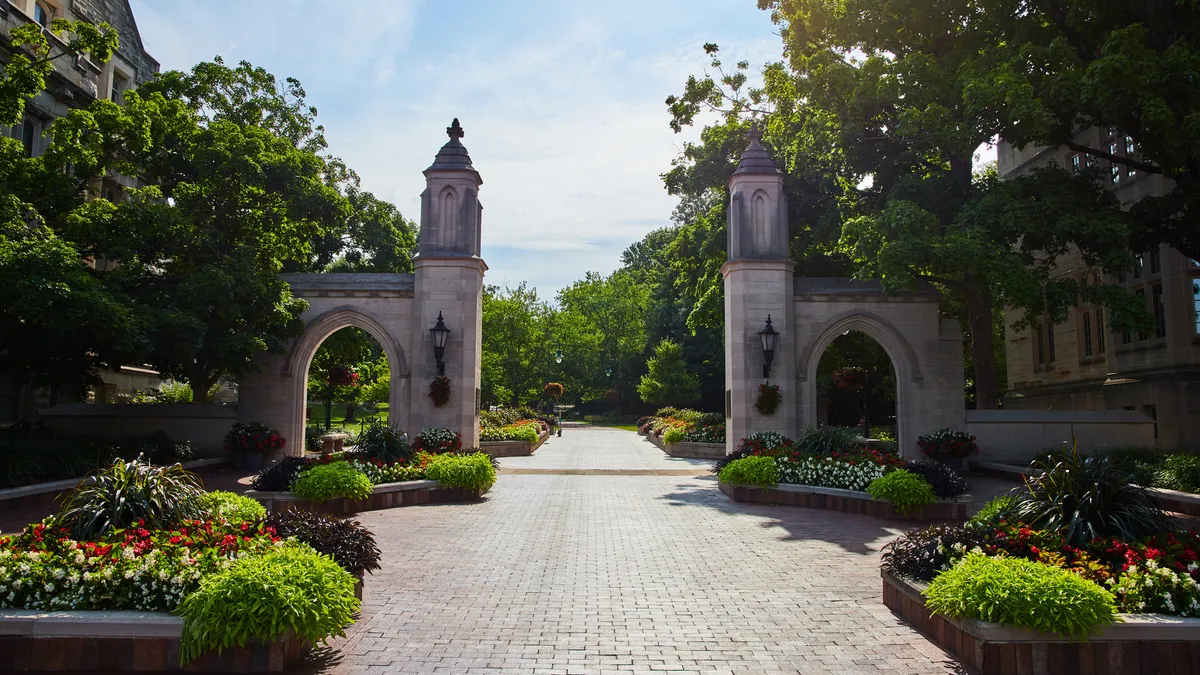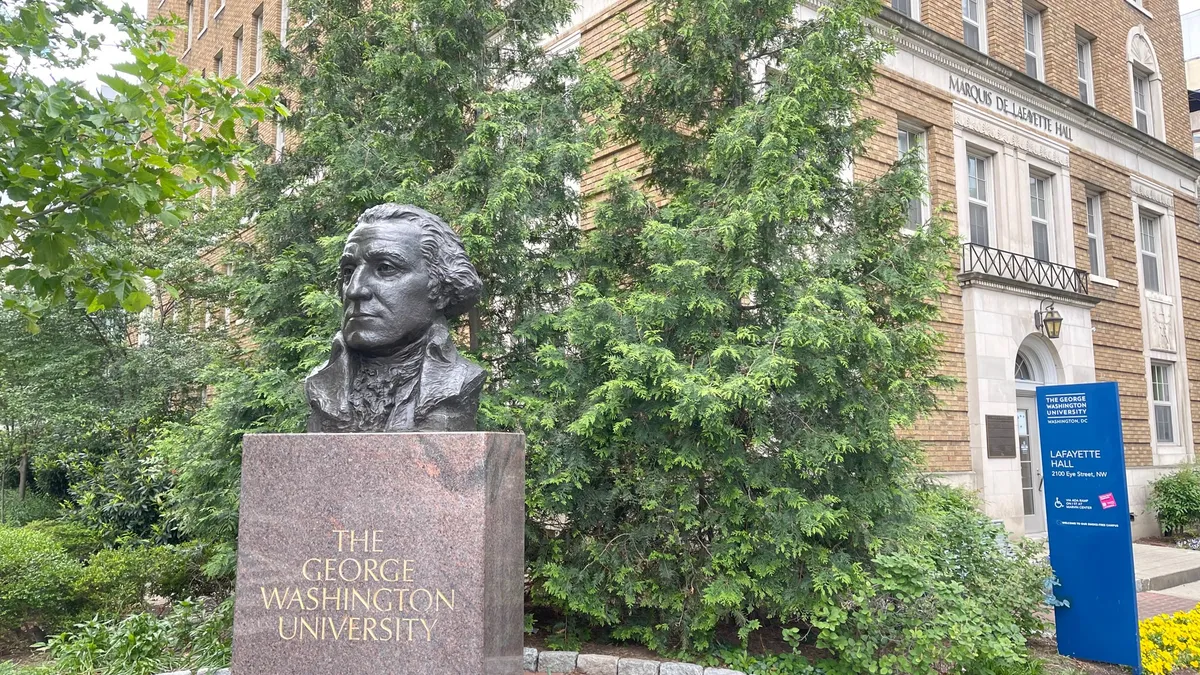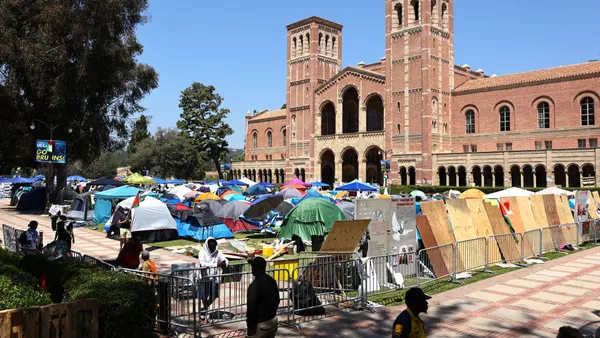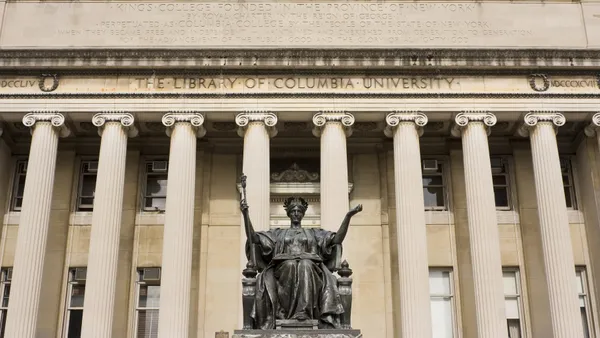Dive Brief:
- More than 60 colleges have signed onto an amicus brief filed last month supporting a lawsuit against an August visa policy change that makes it easier to impose three- and 10-year reentry bans on nonimmigrant visas, which affects international students studying in the U.S.
- The colleges argue the policy "introduces significant and destructive uncertainty" into visa programs that will hinder their ability to recruit top talent worldwide. The policy changes how nonimmigrant visa holders accrue "unlawful presence," sharply reducing or even eliminating the time they have to fix an issue before they face penalties.
- Ivy League institutions, public universities and small liberal arts colleges are listed among those that support the lawsuit, including Harvard University, Pennsylvania State University and Williams College.
Dive Insight:
Four colleges, including The New School and Haverford College, brought the lawsuit in October against the Department of Homeland Security and U.S. Citizenship and Immigration Services. They allege the policy change will harm their international students who may inadvertently fall out of status and end up barred from the country without completing their programs.
Under the previous policy, international students began accruing "unlawful presence" the day after they were officially determined to have fallen out of status. The amicus brief contends this provided students with a "clear notice of when the unlawful presence clock began ticking" and gave them the ability to fix their status or leave the U.S. before they faced a reentry ban.
Now, "unlawful presence" is backdated to the moment of a status violation, meaning students may be banned from the country before they realize they have a status violation. Such a violation could occur due to "clerical and technical errors, often of someone else's making," the brief contends. The lawsuit notes that ways individuals could fall out of status include failing to update their address, dropping below a minimum course load or having an error in their records.
In response to the new policy, The New School has changed how it advises international students by sending more of them to outside immigration lawyers. This raises costs for students and places burdensome delays on the college, according to the complaint.
Jill Welch, the deputy executive director for public policy at NAFSA: Association of International Educators, told The New York Times in March that the policy would further shut out international students from U.S. higher education. "This is yet another policy which makes the U.S. less attractive to talented international students and scholars," she said.
Nearly one-third (32.7%) of international students said they had less interest in coming to the U.S. because of the current political environment, largely out of concerns about the current presidential administration, travel restrictions and personal safety, according to a survey of more than 2,000 international students by EAB. Out of the remaining students who are still interested, more than half (55.3%) said visa restrictions could dampen their interest.
Waning interest in U.S. higher education among international students could have a disastrous effect on American colleges, which benefit from the added diversity and tuition dollars they bring.
Some colleges have already seen sharp declines in international students hurt their bottom lines. At the University of Central Missouri, a year-over-year drop of 1,500 international students led to an estimated $14 million revenue loss. And Wright State University is dealing with an expected $10 million loss in the 2019 fiscal year partly caused by a drop of almost 800 international students over a two-year period.
Others are taking precautions against further declines. The University of Illinois, for example, took out a $60 million insurance policy against a 20% or greater decrease in revenue from Chinese students over a one-year period.













